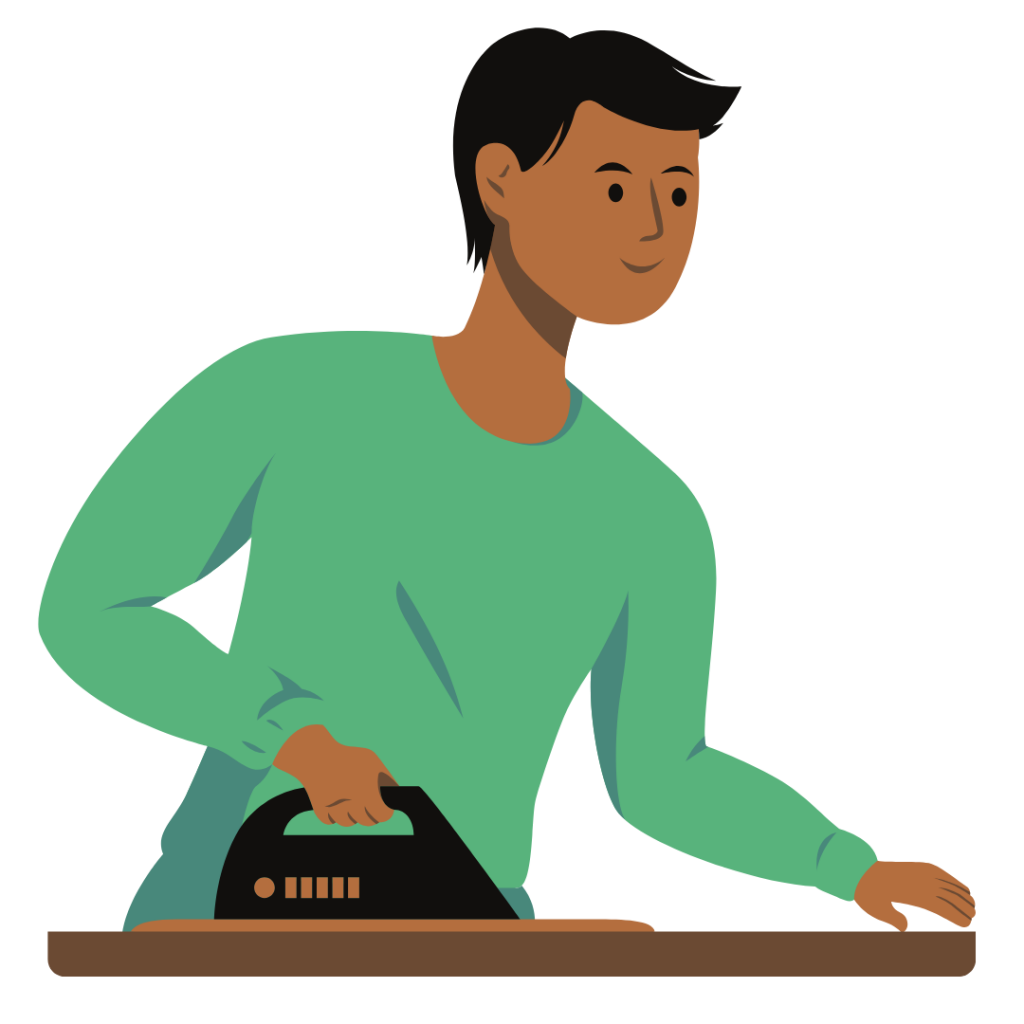
Never help a child with a task at which he feels he can succeed.
Maria Montessori
From an early age, children learning to do basic things for themselves provides an enormous boost to their self-esteem as they become more independent.
When the preschool child first learns to feed or dress themselves, they feel a delight that they are in charge of their environment and are beginning on the road to independence. As children become older and learn more complicated tasks, this gives them a great sense of achievement and the idea that they can do many useful things.
These tasks can be from many different areas in their lives such as formal activities taught outside the homes such as dancing, sport, music, and so on, or simple everyday tasks taught in the home such as DIY, cooking, cleaning, gardening, minding other children; they all boost a child’s sense of self-esteem and self-worth. The more tasks a child knows how to do and the more varied the list, the more engaged they are in their world and the happier they feel.
Frequently, I am struck by how parents miss out on giving their children responsibilities and taking time to teach their children things in the home. So often in homes parents do everything for their children and the children are sitting around most of the day engaged in passive activities such as watching TV or using technology.
These passive activities don’t engage children’s learning and talents and do not give them the same satisfaction as mastering basic home and household tasks. I have worked with many children who are struggling in school or in extra-curricular activities, but who feel much happier in the home because there are many things at home that they do well and that give them pleasure.
In working with one depressed teenager who had become severely withdrawn, it was getting him back and engaged in simple self-care and family tasks at home (notably getting dressed rather than staying in pyjamas, coming down for a family dinner and helping out a little) that began his recovery.
The benefits of parents teaching children
There are also many benefits to parents when their children learn lots of different everyday tasks and chores.
First of all, when a child learns early on to do basic self-care and household tasks this relieves the parent of having to do these jobs. Secondly, many behaviour problems and conflicts are caused by the child not yet having learned some basic tasks or not taking responsibility for themselves.
Whether this is battles with a pre-schooler over getting himself dressed in the morning (because he still has not mastered this skill) or battles with a teenager to get up on time (because the parent still takes responsibility for his morning schedule), these problems can be alleviated if time is taken to teach and hand over these responsibilities to the children.
However, there is also a much more profound benefit for parents who take time to teach their children everyday skills, namely the impact it has on the parent’s own self-esteem and confidence.
Frequently, parents are passive facilitators of their child’s education and learning. Their role is relegated to being a “taxi driver” taking their children to learn in other arenas, whether this is school or to extra curricular activities where children learn important skills from another person. As a result, many parents miss out on the unique pleasure of being a teacher or mentor to their children.
When you take time to teach important skills to your children, this creates a special source of connection and bonding. In addition, it puts you in the role of being a positive teacher or influential mentor with your children which increases their respect for you.
In a clinical practice, I have seen the enormous sense of satisfaction that parents experience when they teach their child something important. For example, I have worked with parents who teach their children how to keep to a bedtime routine or to reorganise their homework in a more positive way or to learn simple household skills such as cooking or DIY and, universally, these parents feel thrilled when they achieve this.
As well as this skill-learning being an enormous boost to the child’s confidence and self-esteem, it also boosts the parents’ confidence and self-esteem in equal measure.
How to teach children skills
My suggestion to parents is to make sure there are areas in your child’s life where you are a teacher/ mentor to them. Rather than delegating all this to others, prioritise teaching each of your children something. This could be as a simple as teaching your children to swim rather than taking them to classes or showing them how to play chess (if that is your interest) or setting up a roster of cooking with them.
Even if there is an area where you don’t have the skills to teach, you can counteract this by learning together. If cooking is something you want to introduce in the home, why not do a cookery class with your son or daughter? As a rule of thumb, it is important to have one current “teaching” project with each of your children.
Family learning projects are something in which grandparents and other extended family members might become involved. For example, how about getting your child to learn to grow their own vegetables or DIY from one of his grandparents who might have been an expert in this in the past. This is great for family connections.
This is part 5 of a six-part series, on building your child’s self-esteem. Read Part 6.
About the Author
This article by Prof . John Sharry was originally published in The Irish Times newspaper. John writes in the Irish Times Health+ every second Tuesday. For further information on building children’s self-esteem, read John’s book: ‘Bringing Up Happy, Confident Children’.
